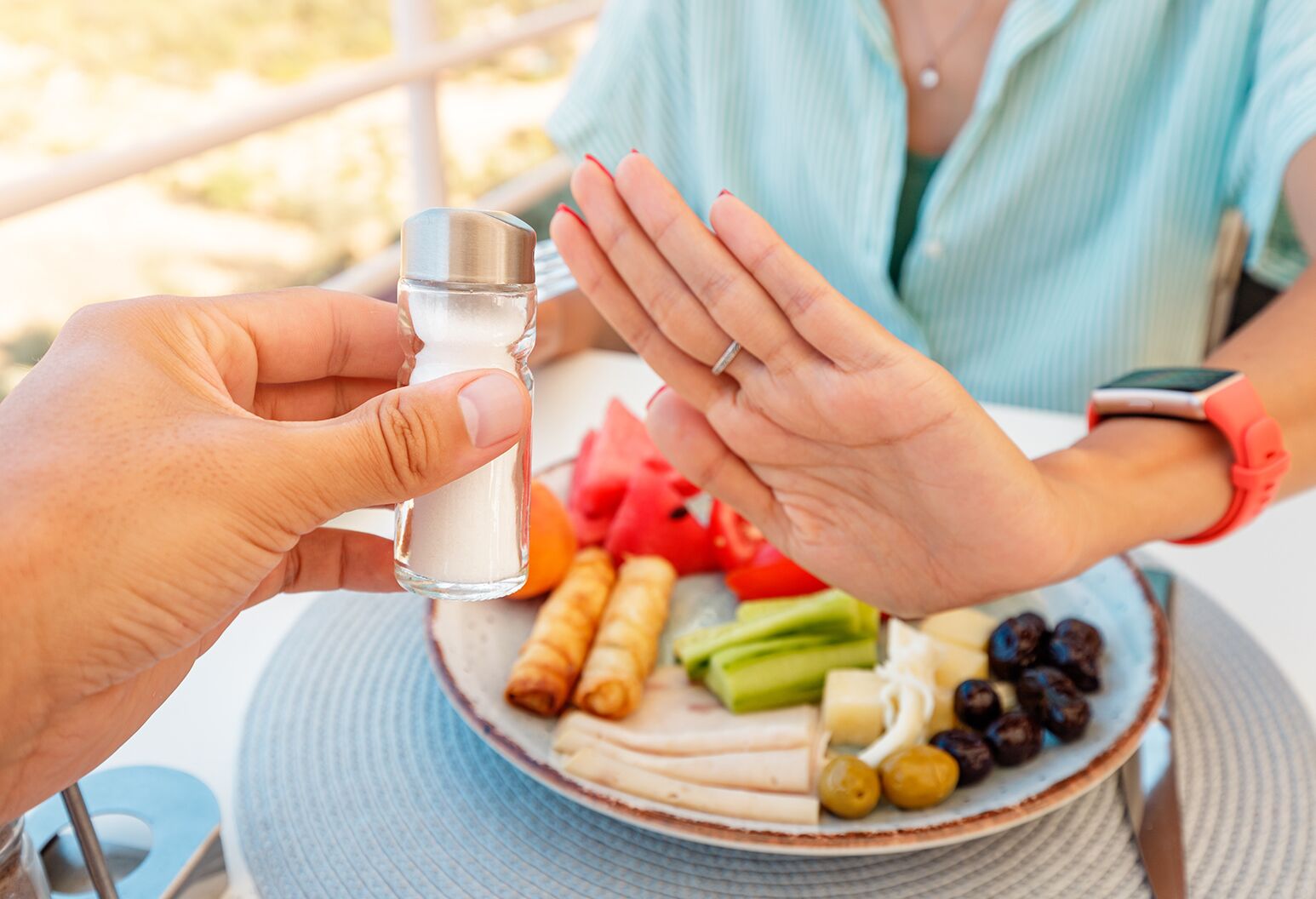healthy living/fitness
Balsamic Chicken And Jicama Slaw: A Perfect Match

Dropping a little salt from our diets could help us cut our risk of heart disease and stroke. But how hard is it? Here’s what one woman learned.
4 min read
I stared as my 11-year-old son picked up the precious container and, without a thought or a concern, tipped it over his bowl of steaming noodles. Suddenly, everything seemed to move in slow motion as tiny white crystals cascaded forth like a gentle rain.
“Mom, you OK?” he asked. “You look sad.”
He hadn’t even tasted the food before deciding it needed the one thing I had sworn to forgo for three days: salt.
Maybe for you, salt is a condiment like any other—something to sprinkle if your food tastes a little bland. You might add a dash, with flair, while cooking. But for me, salt is something more. It’s a key part of my day. Consider this: I enjoy drinking pickle juice, and I even tip a little bit of salt into my iced coffee every morning, just to give the flavor a tiny boost.
I always seek out salty over sweet (though I do like both), and I frequently justify this obsession by saying I need to make up for the salt lost while I (a personal trainer and fitness coach) exercise. But each time I shake some salt onto my food, I hear a little voice in the back of my head asking if I really need the stuff.
So, I decided to try going without it, and learn more about what salt is and does.
Table salt is made from sodium and chloride, and while we need sodium to survive, it’s also known that too much salt can cause blood pressure to rise, which can lead to stroke, kidney failure, and heart disease.
It is recommended that adults ingest fewer than 2,300 milligrams of salt per day. That’s about a teaspoon, a tiny amount as compared to what I typically shake into my food and drinks. I’m not alone in my overconsumption; studies show that American adults ingest about 3,600 milligrams per day.
Experts say that about 10% of our salt comes from salt added to food, while the rest often comes from processed foods. They recommend choosing foods that provide less than 5% of the daily value of salt per serving.
What can happen if we reduce our salt intake? According to a 2010 study funded by the National Institutes of Health, a reduction in dietary salt of up to 3 grams per day could reduce the annual number of new cases of heart disease by 60,000; stroke by 32,000; and myocardial infarction by 54,000. The number of deaths per year would decrease by 44,000.
“A regulatory intervention designed to achieve a reduction in salt intake of 3 grams per day would save 194,000 to 392,000 quality-adjusted life-years and $10 billion to $24 billion in health care costs annually,” the study said. “Modest reductions in dietary salt could substantially reduce cardiovascular events and medical costs and should be a public health target.”
Although I have not been told by a doctor to limit my salt intake, I have a sneaking suspicion that—given my love of the stuff—such an edict may eventually come down. So, I took on this assignment to see if I could handle a reduction.
Instead of mindlessly picking up the shaker with every meal, I tried to ignore it. Thankfully, my coffee tasted just fine, as did my scrambled eggs. But my usual lunch of quinoa, chicken, tomatoes, olive oil, and avocado lost some of its luster without salt (I also forewent Everything Seasoning, which is essentially my lifeblood). And when my kids had bowls of salty, buttery popcorn while we watched a movie, I looked at the snack with serious longing.
I tried to find out exactly why I and so many other humans seem to have a biological craving and love for salt, but the research I found was mostly anecdotal, pointing to how we as a species emerged from the primordial ooze and needed to maintain our “internal sea,” according to an article in The Guardian.
During my period of salt abstinence—the assignment was for one week, but I only made it for three days—I experienced some benefits. I was less puffy and bloated and, because I had to stay away from a lot of processed foods, I felt healthier.
Now, I’m back on salt, but I’m more mindful about its use. I’ve stopped reaching for it at unnecessary times and think twice about what might actually need the seasoning.
But I’ll admit I still put salt in my coffee—just a little less.
The Well is Northwell Health’s commitment to the future of health care. In this time of information overabundance, much of which is inaccurate, unhelpful, or even difficult to understand, Northwell Health is on a mission to make a difference as an honest, trusted, and caring partner. The site connects with consumers to provide them with personalized content that reduces their stress, makes them laugh, and ultimately feel more confident and capable on their healthcare journey.